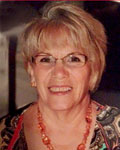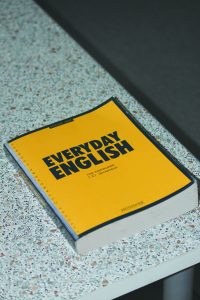September 1, 2023
PUBLISHER’S CORNER
English 101
 By Eloise Graham
By Eloise Graham
I ought not give it a thought, but I did. I pondered and I wondered, I wondered and I pondered (shouldn’t those rhyme?) and I even wandered as I pondered. I thoroughly thought it through, and though I have no solution I do know the English language is a rough and tough nut to crack.
School has started and students everywhere are opening up their English books and starting to study our English language. Is there a rule about the “ough” and “ought” words? Or do they just have to memorize them and their proper pronunciations? We have a rule for “ei” and “ie” words. “I before E except after C” as in believe and receive. But there is an exception – or when it sounds like an A as in weigh and neigh. Here are some more idiosyncrasies of our language, more difficulties in learning it. * I won one game. * I went to the park and had two too many hot dogs. * Over there is their camper they’re buying. * I have to have half a cup. *
 Do you get where I am going with this? Our language is really difficult to learn, or understand if we are only given the word but not the context. Take “B O W” – is it bow as in a curtsy or bow with quiver and arrows? Let’s go with bow ’n arrow. “My beau took his bow and made a bullseye. He then took a bow under the bough of the tree. I applauded.” Here are some other examples: convict, CONvict – a prisoner or conVICT -to find guilty; digest, diGEST – to absorb nutrients or DIgest – a collection of published materials; relay, reLAY – to pass along. REElay- a race by teams, reeLAY – to put down again as in flooring; row, rouw – a fight, row – a line or propel a boat; permit, PERmit – a document giving permission, perMIT – to allow. Heteronym is the term given to these.
Do you get where I am going with this? Our language is really difficult to learn, or understand if we are only given the word but not the context. Take “B O W” – is it bow as in a curtsy or bow with quiver and arrows? Let’s go with bow ’n arrow. “My beau took his bow and made a bullseye. He then took a bow under the bough of the tree. I applauded.” Here are some other examples: convict, CONvict – a prisoner or conVICT -to find guilty; digest, diGEST – to absorb nutrients or DIgest – a collection of published materials; relay, reLAY – to pass along. REElay- a race by teams, reeLAY – to put down again as in flooring; row, rouw – a fight, row – a line or propel a boat; permit, PERmit – a document giving permission, perMIT – to allow. Heteronym is the term given to these.
There are so many words that sound alike but are spelled differently and with different meanings. These are called homophones. Examples include rain, rein and reign; flower and flour; air, err and heir; bear and bare; pear, pare and pair; bolder and boulder; sight, site and cite; hole and whole; holy, holey and wholly; canon and cannon; your, you’re and yore; peak, pique and peek; real and reel; I, eye and aye; here and hear.
Both lists could go on and on. You may even have thought of some that you use. Even some that confuse. I have empathy for those that have English as a second language.
Filed Under: History
Trackback URL: https://www.50pluslife.com/2023/09/01/publishers-corner-89/trackback/


